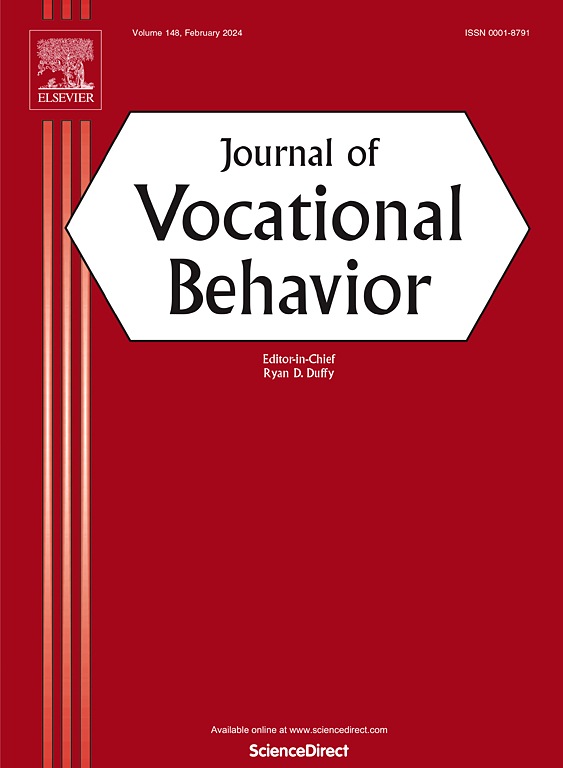Managing the risks and side effects of workplace friendships: The moderating role of workplace friendship self-efficacy
Abstract
In this paper, we investigate the risks and side effects of workplace friendships for coworkers. Combining the dialectical perspective on workplace friendships with a self-regulatory perspective, we argue that workplace friendships can lead to incivility directed toward coworkers because employees experience inter-role conflict between their role as “employee” and their role as “friend”, and subsequent resource depletion. We further suggest that employees with higher workplace friendship self-efficacy are better able to manage these risks and side effects. We tested our hypotheses in two studies with time-lagged data (Study 1: 451 employees, Study 2: 499 employees) using structural equation modeling. Study 1 showed that workplace friendships are positively related to incivility via inter-role conflict and subsequent resource depletion. Workplace friendship self-efficacy buffered the indirect relation between workplace friendships and incivility. Study 2 partly replicated and extended the findings from Study 1. We found support for the serial mediation effect of workplace friendship on incivility via inter-role conflict and resource depletion and we were able to extend Study 1 by disentangling the targets of incivility. In particular, employees instigated incivility toward other coworkers rather than their workplace friends. However, the moderating effect of workplace friendship self-efficacy did not replicate. Our findings contribute to the literatures on workplace friendships and role conflicts.

 求助内容:
求助内容: 应助结果提醒方式:
应助结果提醒方式:


